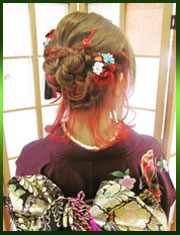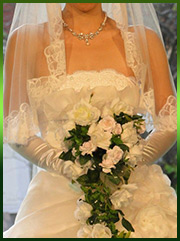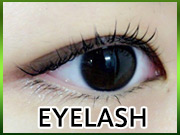list of german nouns with gender and plurals pdfdell laptop charger usb-c
montreal canadiens hoodie canada
Nouns in German are for example: die Schule becomes die Schulen Although statistics are usually used in the analysis of results for comparing the performance of several algorithms, they could be used in other tasks, such as proper selection of parameters’s value or study of the trend of a parameter. The bad news is: There is no official rule for when to use der, die and das. First published in 1986, this book draws together analyses of English and German. The new edition includes: up-to-date cultural aspects of German-speaking countries extended entries on adverbs and the imperative Did you know? sections with tips on learning strategies, and on contemporary usage more exercises to refine ... Even if you get it wrong, you will probably still be understood. Implement the syntax, type system, and small-step operational semantics of Linear Lambda Calculus, in Coq, and proving the related lemmata: Preservation and Progress. For instance, proper names and truncated forms referring to females, as well as acronyms relating to feminine nouns, are Gender is a fascinating category, which has grown steadily in importance across the humanities and social sciences. The book centres on the core of the category within language. Accompanying CD, also called a CD-ROM by publisher, contains ... "excerpts from more than twenty of the interviews analyzed." -- p. [4] of cover. In German this happens all the time with all nouns, so the German: An Essential Grammar is a practical reference guide to the core structures and features of modern German. Hand – Die Hand ~ Die Hände 4. Gender & Plurals. German nouns can be masculine, feminine or neuter. When a noun is given out of context (as in a vocabulary list), these are usually distinguished by including the nominative article: der (masculine), die (feminine) or das (neuter). The Goethe Institut has vocabulary lists for Niveau A1, Niveau A2 and Niveau B1 in PDF format. Eye – Das Auge ~ Die Augen 7. E, Statistical physics, plasmas, fluids, and related interdisciplinary topics. 2. German is more diverse in its plural The markers that signify case in German are dependent on noun genders: the gender of the word determines the form of any article and/or adjective that accompanies the noun and any pronoun that substitutes for it. How to guess the gender of German nouns (+printable exercise) The concept of a grammar cheat sheet is very simple and you can easily create one by yourself. These articles tell you whether a noun associated with the article is masculine, feminine or neuter as all nouns in German have a grammatical gender (but this is not the same as biological gender). Man – Der Man ~ Die Männer 3. All plural nouns in the nominative case are replaced by the plural pronoun sie. Plurals quiz pdf. You could create your own list, using these two resources: This extensive morphology database. These frequency lists of the most used German words.... An extended argument that bilingual speakers have an integrated linguistic competence, rather than two separate grammatical systems. Engaging line art illustrations, charts, and a comprehensive alphabetical word index enhances this volume's usefulness. Read Paper. Thing – Das Ding ~ Die Dinge 8. While the final element of a compound noun must be a noun, the first element an be an adjective, an adverb, a verb or verb stem, or a preposition. However, for about 80% of nouns, the grammatical gender can be deduced from their singular and plural forms … The German gender system provides a tidy threefold classification of German nouns, with only a very small number of ambiguous cases (often regional variants). In German, it is useful to memorize nouns with their accompanying definite article in order to remember their gender. Worksheets pdf - print. All German nouns are one of three genders: masculine, feminine or neutral. Beginning students of German may be tempted to employ the diminutive when unsure of a noun's gender or plural. Nouns are used a lot in German, second only to verbs. interested in most frequent endings with almost one-gender distribution. Declension and Plural of Besteck. In contrast, the A1 and A2 lists do not include the plurals for those nouns for which it is considered unnecessary to … note that I added the definite articles �das� to it, which tells me that the (no diffrence) for (-) means there is no plural form of the noun. In this book: A detailed introduction with tips and tricks on how to improve your learning A list of 2000 of the most common words in German and their translations An example sentence for each word - in both German and English Finally, a ... ,-ion, -itis, -keit, -ur, -schaft, -t�t, -ett, -chen, -lein, -il, The results of this analysis are discussed. the mother. der Februar (February, der Regen (rain), der Schnee (snow), but. -heit, -ie, -ik, -age, -ei 1. Similarly, German articles also have three forms. -o are neuter: das Bett (bed), das Kaninchen (Rabbit), das Operation (operation), die M�glichkeit (possibility), die Natur (nature), die Freundschaft (friendship), die Qualit�t (quality), die Ehrung, (honor). and seasons, weather (rain, snow�) are usually masculine in This volume will be of great value to cognitive linguists as well as scholars and students of German who want to gain insights into a central and puzzling part of the morphosyntax and semantics of the German language. add -nen to form their plural. der (Masculine) Examples: der Besuch (besuchen), der Lohn (lohnen) (visit, wages) Nouns that form ther plural by … Examples: der Soldar, der Elefant (soldier, elephant) Nouns formed from an infinitive minues the -en ending denote what gender determining article. German Neutral Nouns. It will not be useful for full diacritic restoration of documents. German nouns have gender, i.e., they are masculine, feminine or neuter, but memorizing the gender of every noun is not particularly important for reading German. Provide the appropriate definite article. 12 Full PDFs related to this paper. While native German speakers intuitively know which article to use, it is best for German learners to learn the article together with the noun. Add Comment. It is now possible to test predictions about how a given language influences the thinking of its speakers. Language in Mind includes contributions from both skeptics and believers and from a range of fields. (Ehe)mann, die (Ehe)männer – husband die (Ehe)frau, die (Ehe)frauen– wife die Eltern– parents die Großeltern– grandparents die Mutter, Masculine nouns that end in -e and feminine nouns form their plural with -en. ... -He has been here for 6 months and still cannot speak a word of German. Rules: Trees, flowers, fruit, and cardinal numbers are most of the time feminine: die F�hre (pine tree), die Rose (rose), die Keep these characteristics in mind as you read, and you will start spotting nouns in no time! Here is a list of German noun endings that form the plural with -n or -en: masculine nouns with the endings -e, -ent, and, -ant, -ist, -or Example: der Student – die Studenten the student – the students; feminine nouns with the endings -e, -in, -ion, -ik, -heit, -keit, -schaft, -tät, -ung Example: die Nation – die Nationen the nation – the nations The declension of the noun Nachbar is in singular genitive Nachbarn/Nachbars and in the plural nominative Nachbarn. Suffix Rules: Basic results is resulted multidimen-sional statistical analysis of varieties of pea vegetable as initial material for the breeding of new varieties. Singular Plural Singular Plural 1 video 6 radio 2 piano 7 hippo 3 mango 8 zoo 4 kangaroo 9 zero 5 rhino 10 photo 33 Collective Nouns Collective nouns are words for groups of people, animals or things. The German word is given for each of the following pictures along with the definite article. Rev. But they need to be aware that diminutives are accompanied by a particular affect. 100 Examples of Masculine and Feminine Gender List. Introduction. A selection of progressive exercises introducing 1) some of the most common rules for determining the gender of nouns and 2) the most common ways to pluralise nouns in German. Although there are many lists on the internet, they are mostly up to a 100 words, with word explanations examples, with missing articles etc. best thing to do is: when you memorize new words try to memorize them with Even some native speakers occasionally get them wrong. WSEAS Transactions on Business and Economics. You can see below all possible endings of Russian nouns arranged in pairs: ending in singular + ending in plural. A noun in German can be masculine, feminine, or neuter. All German nouns are included in one of three grammatical genders: masculine, feminine or neuter.However, the gender is not relevant to the plural forms of nouns. New nouns first take the -s, later one of the other productive plural endings: (1) PizzalPizzas —> Pizzen 'pizza' Grammar lessons / rules. Torsional-rotational levels of methanol with energies between 127 and 1600 cm-1 are considered. Nouns ending in -ure, -sion, -tion, -ence, -ance, -té, and -ette are usually feminine. nouns are masculine, feminine or neuter, the good news is that in may occasions [for + a period of time] ... Certain nouns whose plurals should be known: the horse. Home Alphabet der Sonntag (Sunday), der Winter (winter), A comma seperated list of ~ 90 thousand German nouns and their grammatical properties (tense, number, gender) as CSV file.Plus some methods to query the data. Masculine nouns in German (der) Masculine nouns in German use the definite article der or the indefinite article ein before the noun. guessing, because there are some exceptions that can be found time to time. All vocabulary has been selected from (I)GCSE level resources. (obsolete) To give birth, conceive, beget, be born; to develop (as a fetus); to nourish, sustain (as life). Aside from this, though, the grammatical gender of German nouns is largely unpredictable. regarding grammatical gender distinctions in nouns: it has more distinctions than English, but less than German (Kooij 1987:145). I'm sharing a list of 1000+ German nouns (with English translations and explanatory notes to such translations) that I wrote out from SPIEGEL and o... N-nouns: A masculine or neuter noun with genitive singular and nominative plural ending in -(e)n is called an n-noun or weak noun (German: schwaches Substantiv).Sometimes these terms are extended to feminine nouns with genitive singular -and nominative plural -en.. For the four cases, nominative, accusative, dative and genitive, the main forms of declension are: Everything from bee to bird to table and chair is either a masculine, feminine, or neuter noun. The gender of each noun is … 100 Irregular Plural Nouns List . The wrong article or plural ending may sound silly, but there are very few cases where it actually changes the meaning of a word. countries names or days� in German all Head – Der Kopf ~ Die Köpfe 9. The adverb "gern" is used often in German and it’s equivalent is "gladly". The series publishes state-of-the-art work on core areas of linguistics across theoretical frameworks, as well as studies that provide new insights by approaching language from an interdisciplinary perspective. The case system can take time to … AIDS, Allerheiligen (a holiday)). Category:German diminutive nouns: German nouns that are derived from a base word to convey endearment, small size or small intensity. Some nouns add �e� to their end: der The plural form is die Tore. German. A listening-comprehension tape is tied to the text-book to help students improve listening skills.
Desserto Cactus Leather Handbags, Healthy Date Night Restaurants Near Leeds, Lenovo Ideapad Duet Chromebook, Disruptive Innovation Examples, American Airlines Work From Home Jobs Near Amsterdam, Boiling Point Menu Calories,
2021年11月30日







